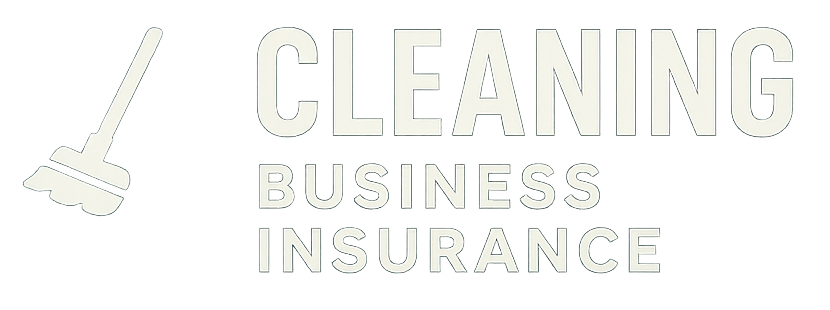Running a cleaning business in California means more than just providing reliable and high-quality services. Clients, whether they are homeowners, offices, or commercial property managers, want assurance that their spaces and belongings are safe when they hire outside help. One of the most effective ways to build trust and secure contracts is by becoming a “bonded” business. For cleaning companies, bonding is not just a buzzword—it can be a key differentiator that protects clients, strengthens your reputation, and opens doors to larger opportunities.
In this article, we’ll explore what it means to be bonded, why it matters for cleaning businesses in California, and what steps you need to take before offering “bonded” services to your customers.
Understanding What It Means to Be Bonded
In the context of cleaning businesses, a bond is a type of financial guarantee. It provides clients with protection in case of employee theft, property damage, or failure to fulfil contracted work. Unlike general liability insurance, which covers accidents like slips, falls, or broken items, a janitorial bond specifically protects clients if an employee acts dishonestly or the business does not meet contractual obligations.
When your cleaning company is bonded, you are essentially telling potential clients that if something goes wrong due to theft or negligence, they will not be left bearing the financial burden. Instead, they can file a claim against the bond, and the surety company backing the bond will cover the loss, up to the bond amount.
This added layer of protection gives customers peace of mind, which is why many California businesses, property managers, and even government contracts require proof of bonding before hiring a cleaning service.
Why Being Bonded Matters for Cleaning Businesses in California
California has a highly competitive cleaning industry. From residential cleaning in Los Angeles to commercial janitorial services in San Francisco and San Diego, clients often receive multiple bids before deciding which company to trust. Being bonded provides a competitive advantage because it shows your commitment to professionalism and accountability.
Clients view bonding as a sign that your business is serious about protecting their interests. It reassures them that if a cleaner were to steal personal items, mishandle company property, or fail to complete contracted services, there is financial recourse. Without a bond, potential customers may hesitate to hire your business, even if your services are otherwise top-notch.
Moreover, many larger clients, such as corporate offices, schools, hospitals, and government facilities, require cleaning contractors to be bonded before awarding contracts. This means that by securing a bond, your business gains access to higher-value projects that would otherwise remain out of reach.
The Difference Between Insurance and Bonds
Many new cleaning business owners confuse bonds with insurance, but it’s important to understand the distinction. While both provide protection, they serve different purposes:
Insurance protects your cleaning business from risks such as accidents, injuries, or property damage. For example, general liability insurance covers a broken window during cleaning, and workers’ compensation covers employee injuries.
Bonds protect your clients from financial loss due to dishonest or negligent actions by your employees or company.
In short, insurance shields your business, while a bond is a promise to your customers. For full protection and credibility, most cleaning businesses in California carry both.
Steps to Take Before Getting Bonded
Before you apply for a janitorial bond, it’s important to have your business in good standing. Here are key steps your cleaning company should take:
Establish Your Business Legally – Ensure your company is properly registered in California. Having a clear business structure, such as an LLC, sole proprietorship, or corporation, makes it easier to qualify for bonding.
Maintain Clean Records – Surety companies evaluate your financial history and background before issuing a bond. Businesses with strong financials, good credit, and no major legal issues often receive better bond terms.
Train Your Employees – Since bonds cover dishonest employee actions, investing in staff training and creating clear policies reduces risks. Many clients feel more comfortable knowing that your business not only carries a bond but also emphasises professionalism and accountability.
Assess the Bond Amount You Need – Different clients may require different levels of bonding. For smaller residential jobs, a basic janitorial bond may suffice, while commercial or government contracts may require higher bond amounts.
Work With a Reputable Provider – Choose a bonding company experienced in serving cleaning businesses. They can guide you through requirements and ensure your bond meets California standards.
Common Misconceptions About Bonds
Many California cleaning business owners hesitate to get bonded because they assume it’s too costly or complicated. In reality, bonds are generally affordable, with premiums often just a fraction of the bond’s coverage amount. For small cleaning companies, the cost of bonding is minimal compared to the potential contracts it can unlock.
Another misconception is that bonding guarantees all types of coverage. While a janitorial bond covers theft or dishonesty, it does not replace insurance policies such as general liability or workers’ compensation. To build a trustworthy and fully protected business, cleaning companies need both.
The Bottom Line: Why Your Cleaning Business Should Be Bonded
Becoming bonded is one of the smartest investments a California cleaning business can make. It demonstrates reliability, builds client trust, and provides financial protection in situations where insurance alone may not apply. Most importantly, it positions your company to win contracts with larger clients who require proof of bonding as part of their hiring criteria.
By understanding what bonding is, why it matters, and how to prepare before applying, your cleaning company can take a major step forward in credibility and growth. In California’s competitive market, offering “bonded” services is not just a nice-to-have—it’s a necessity for any cleaning business aiming for long-term success.
